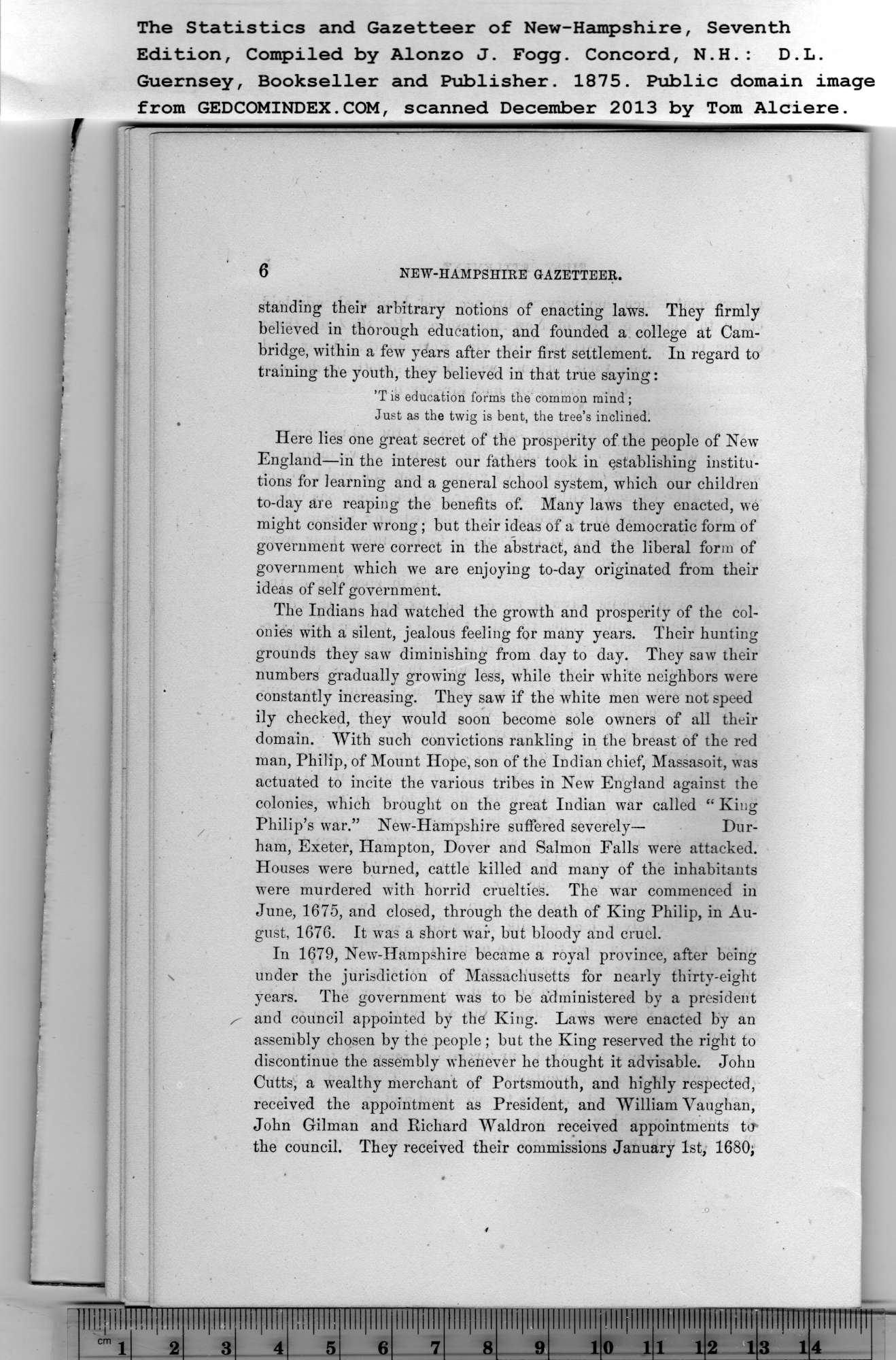|
6 NEW-HAMPSHIRE GAZETTEER.
standing their arbitrary notions of enacting laws. They firmly
believed in thorough education, and founded a college at Cam-
bridge, within a few years after their first settlement. In regard to
training the youth, they believed in that true saying:
’T is education forms the common mind;
Just as the twig is bent, the tree’s inclined.
Here lies one great secret of the prosperity of the people of New
England—in the interest our fathers took in establishing institu-
tions for learning and a general school system, which our children
to-day are reaping the benefits of. Many laws they enacted, we
might consider wrong; but their ideas of a true democratic form of
government were correct in the abstract, and the liberal form of
government which we are enjoying to-day originated from their
ideas of self government.
The Indians had watched the growth and prosperity of the col-
onies with a silent, jealous feeling for many years. Their hunting
grounds they saw diminishing from day to day. They saw their
numbers gradually growing less, while their white neighbors were
constantly increasing. They saw if the white men were not speed
ily checked, they would soon become sole owners of all their
domain. With such convictions rankling in the breast of the red
man, Philip, of Mount Hope, son of the Indian chief, Massasoit, was
actuated to incite the various tribes in New England against the
colonies, which brought on the great Indian war called “ King
Philip’s war.” New-Hampshire suffered severely— Dur-
ham, Exeter, Hampton, Dover and Salmon Falls were attacked.
Houses were burned, cattle killed and many of the inhabitants
were murdered with horrid cruelties. The war commenced in
June, 1675, and closed, through the death of King Philip, in Au-
gust, 1676. It was a short war, but bloody and cruel.
In 1679, New-Hampshire became a royal province, after being
under the jurisdiction of Massachusetts for nearly thirty-eight
years. The government was to be administered by a president
^ and council appointed by the King. Laws were enacted by an
assembly chosen by the people ; but the King reserved the right to
discontinue the assembly whenever he thought it advisable. John
Cutts, a wealthy merchant of Portsmouth, and highly respected,
received the appointment as President, and William Vaughan,
John Gilman and Richard Waldron received appointments to
the council. They received their commissions January 1st, 1680;
PREVIOUS PAGE ... NEXT PAGE
This page was written in HTML using a program written in Python 3.2
|
